Religious Education

|
“For with God, everything is possible” (Matthew 19:26) Through our continued service to our community and rooted in our Christian Values, the opportunities we provide inspire our children and adults at our school to learn, to grow and to flourish. We are committed to developing our children into confident individuals who make a positive difference through developing a respect for themselves, each other and the world around them. For with God, everything is possible. (Matthew 19:26)
The spiritual development of our children is a priority across all areas of the curriculum. At Queen’s Park CE/URC Primary School, we define spirituality as connecting with ourselves, others, the world and God, through whom, everything is possible (Matthew 19:26). We explore spirituality through our Spiritual Capacities (our Spiritual C’s) which are curiosity, creativity, compassion, captivation, consciousness, being courageous contributors and having opportunities to contemplate. We understand the importance of both planned and spontaneous opportunities in all aspects of our CROWN Curriculum. This is evidenced in our class reflections book, through ‘spirituality in the spotlight’ and through speaking to our children.
Our 5 Crown Principles drive our RE Curriculum
Challenge Through the ‘challenge’ curriculum driver we want our children relish challenges that being a theologian can bring: asking perceptive questions, thinking critically, weighing evidence, sifting arguments, and developing perspective and judgement. Children are challenged to develop their own views on religion and given a range of philosophical questions that enable them to ponder and reflect on morality and the meaning of life. Resilience Through the ‘resilience’ curriculum driver, we promote optimism and determination in Religious Education. A selection of carefully chosen theologians, philosophers and key religious figures are included within the curriculum for children to learn from and reflect on their studies and teachings. Children are encouraged to be resilient in their own spirituality and make informed choices about their own beliefs. Opportunities Through ‘opportunities’, we raise aspirations to broaden our children’s horizons – opening their eyes to the myriad careers they might pursue. A range of religious and non-religious experiences are carefully planned throughout the Religious Education curriculum so that children are given the opportunity to visit an array of places of worship and meet with people who practice major world religions. We want our pupils to have a clear understanding of the link between achieving well and having goals for the future. Wellbeing At Queen’s Park, we understand that happiness is linked to personal growth, health and development. We ensure our children are happy, healthy individuals. Religious Education allows children to enrich their own spiritual, moral, social and cultural development so that they might make informed decisions about their own wellbeing. Religious Education provides a safe space to ask big questions and offers a chance to reflect and think about their own sense of self. Children are taught that all religions believe that we are made with a purpose and that we are all special and unique. With ‘wellbeing’ as a curriculum driver, we give children the confidence to thrive in a diverse, global society and be respectful citizens with British and Christian Values at the core. kNowledge Through the ‘kNowledge’ curriculum driver, we encourage our children to be resourceful learners. It is uniquely challenging and coherent to our children. The knowledge imparted in our Religious Education curriculum is sequenced and views of major world religions and non-religious practices are taught All our teachers teach with the aim to ensure pupils have sufficient knowledge to progress through primary school and beyond.
Being a theologian means that disciplinary, substantive knowledge and personal knowledge complement each other harmoniously. Our Religious Education curriculum is underpinned by three main strands, theology, philosophy and human/social sciences. We use the analogy of a three-legged stool, the three legs (strands) provide a stable equilibrium for these disciplines. If one leg was shorter than the other then we would fall off so we have to make sure that we get the balance right. Holding the three disciplines in balance is key. Through disciplinary literacy, all children read like theologians: reading religious and non-religious texts along with commentaries, diaries and accounts of believer’s lives. Reading is the ‘beating heart’ of our Religious Education curriculum.
At Queen’s Park CE/URC School, we follow the St Helens Locally Agreed Syllabus, adopted from Lancashire. We enhance our learning and denominational aspects through using the Diocesan RE Syllabus, Questful RE and Understanding Christianity)
Religious Education Long Term Plan |
|
Religious Education is taught in seven blocks across the year to coincide with the Understanding Christianity key concepts and the Church’s Liturgical Calendar. Enhancement days are including throughout the year to celebrate a range of celebrations and festivals from both religious and non-religious events. Progression documents
Our progression documents have been created by the Religious Education Subject Leader to ensure clear progress in the key concepts that are covered through Understanding Christianity and in line with the statutory assessment outcomes from the Lancashire Agreed Syllabus. The progression documents show key knowledge (substantive knowledge), key vocabulary and key skills (disciplinary knowledge) and assessment outcomes from EYFS – Year 6. |
|
Vocabulary is V.I.T.A.L in RE Valued We value vocabulary in RE and in everything we do. Identified Key vocabulary is identified by the Religious Education subject leader and is explicitly planned for. Taught Vocabulary is explicitly taught in every lesson. Our Crown Planners are used as a teaching tool for key vocabulary and the Religious Education medium term plans include additional vocabulary to be taught. Applied Once vocabulary is taught, it is applied. Children apply their vocabulary in their speaking and listening, writing and assessment outcomes in Religious Education. Learned Vocabulary is revisited and relearned. Vocabulary sticks in the children’s long-term memory. Lesson by lesson, year by year, children revisit and relearn key vocabulary.
Through an ‘explosion of experiences’, our youngest theologians are exposed to the foundations of their Religious Education learning. Carefully planned knowledge of different religions including religious and non-religious traditions and festivals, skills and experiences are provided for our children. High quality books, stories and rhymes are the beating heart of our Religious Education curriculum in EYFS. Key vocabulary is planned for. Staff are role models in demonstrating this vocabulary and this is further enhanced in our excellent provision. Religious Education is explicitly taught every week by the class teachers. The foundations of learning about and from Different Religions is taught in EYFS is linked to Year 1 and beyond. Year 1 to Year 6 Year on year, children will build upon their knowledge of Christianity and the major World Religions, skills and vocabulary. The curriculum leader and history subject leader have created a meaningful, sequential learning journey through Religious Education. Careful curriculum thinking and planning ensures that our children have the subject knowledge and components embedded in their long-term memories.
Pedagogy
Both our staff and children are enthusiastic about Religious Education. Through ongoing CPD, we strive to ensure our teachers have expert knowledge of the religious and non-religious knowledge, practices and traditions that they teach. Our pedagogy is firmly based upon our curriculum intent of embedding concepts into long-term memory so that they are able to be recalled, to ensure substantive and disciplinary knowledge and skills can be applied fluently. Our ‘Queen’s Park Quality First Teaching’ model ensures that lessons are effectively sequenced so that new knowledge and skills build on what has been taught before and towards defined end points.
Both our staff and children are enthusiastic about Religious Education. Through ongoing CPD, we strive to ensure our teachers have expert knowledge of the Religious Education curriculum they teach. Our pedagogy is firmly based upon our curriculum intent of embedding concepts into long-termmemory so that they are able to be recalled, to ensure substantive and disciplinary knowledge and skills can be applied fluently. Our ‘Queen’s Park Quality First Teaching’ model ensures that lessons are effectively sequenced so that new knowledge and skills build on what has been taught before and towards defined end points. At Queen’s Park, we implement an adaptive teaching approach to ensure that all learnersengage in meaningful, challenging, and achievable learning experiences. Our strategy is informed by the Education Endowment Foundation (EEF) research on adaptive teaching, emphasising high expectations, scaffolded support, and responsive adjustments to meet the needs of all pupils. We ensure effective, early identification of any additional barriers to learning, inclusive of but not restricted to Special Educational Needs, Pupil Premium and EAL. Adaptive teaching is essential to our quality first teaching offer as part of our graduated response. Our Approach: 80% Proactive, 20% Reactive We recognise that effective adaptive teaching is most successful when it is intentionally planned in advance (proactive) while also allowing for real-time adjustments (reactive) based on pupil responses and progress. Our model ensures: 80% Proactive Adaptive Teaching: Teachers anticipate and plan for diverse learning needs by designing lessons that provide challenge while being accessible to all. This includes the following:
20% Reactive Adaptive Teaching: Teachers remain responsive during lessons, adapting in the moment to ensure all learners stay engaged and make progress. This includes:
At our school, we believe that with God, everything is possible. We create a caring and exciting learning environment where children are encouraged to be curious, confident, and to believe in themselves. We use digital technology to help children learn, explore, and prepare for the world around them. By using technology in positive and meaningful ways, we help our children become confident learners who are ready for life in an increasingly digital world. We teach our children how to use technology safely, responsibly, and kindly. This helps them grow into respectful digital citizens who understand how to make good choices online and treat others with care. Our aim is to give every child the skills they need for the future. Technology supports our teaching, helping us to personalise learning and provide extra support where needed. It is always used to enhance learning and never replaces high-quality teaching or the important relationships between teachers and children. We also use technology to make learning accessible for all children, supporting different learning needs and helping every child to find their voice. By building confidence, communication skills, and independence, we prepare our children to become lifelong learners who are ready to face future challenges.
The sequence of lessons across Religious Education follows the same structure:
Each lesson, within the sequence, follows the structure so prior knowledge is constantly revisited and transferred to long term memory.
Our Crown Planners support our children with vocabulary and key knowledge for each unit of work. They enhance children’s understanding of key concepts, present information clearly and promote appropriate discussion. |
|
We understand that we may not see the true impact of our Religious Education curriculum on our children as our RE curriculum is just the beginning of a lifetime of learning. Our well-constructed and well-taught RE curriculum leads to great outcomes. Our results are a reflection of what our children have learnt. At Queen’s Park, our philosophy is that broad and balanced leads to great outcomes and meeting end points at the end of each key stage. National assessments are useful indicators of the outcomes our children achieve. We ensure all groups of children are given the knowledge and cultural capital they need to succeed in life. We strive to ensure that our children are equipped with the skills (through a growth mindset approach) to fluently be able to retrieve key facts from their semantic memory. The quality of our children’s work, at every stage, is of a high standard. All learning is built towards an end point and at each stage of their education, we prepare our children for the next stage. We ensure all our children read to a stage appropriate level and fluency. Reading is the beating heart of our Religious Education curriculum. Through disciplinary literacy in Religious Education lessons, the impact of reading on the children’s learning is paramount. The impact of Queen’s Park Religious Education curriculum is measured through the following:
|
R.E Reading Spine
 Queen's Park CE/URC
Queen's Park CE/URC 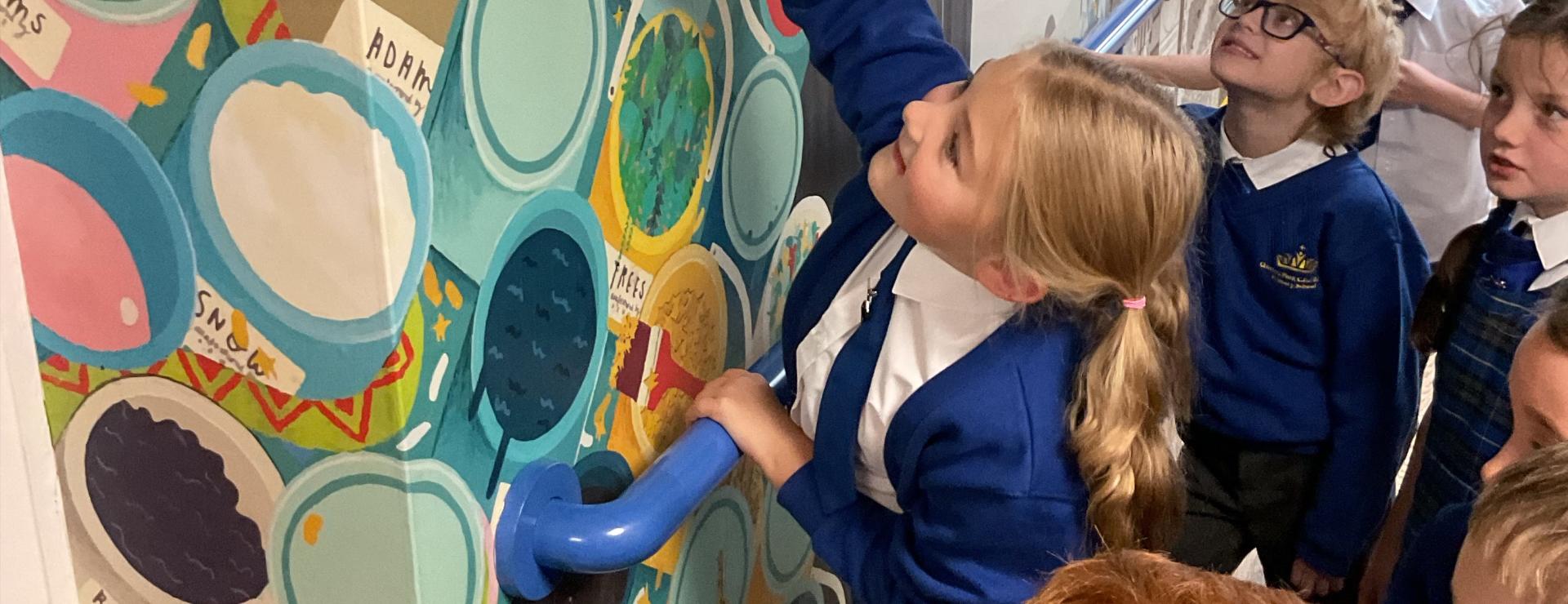
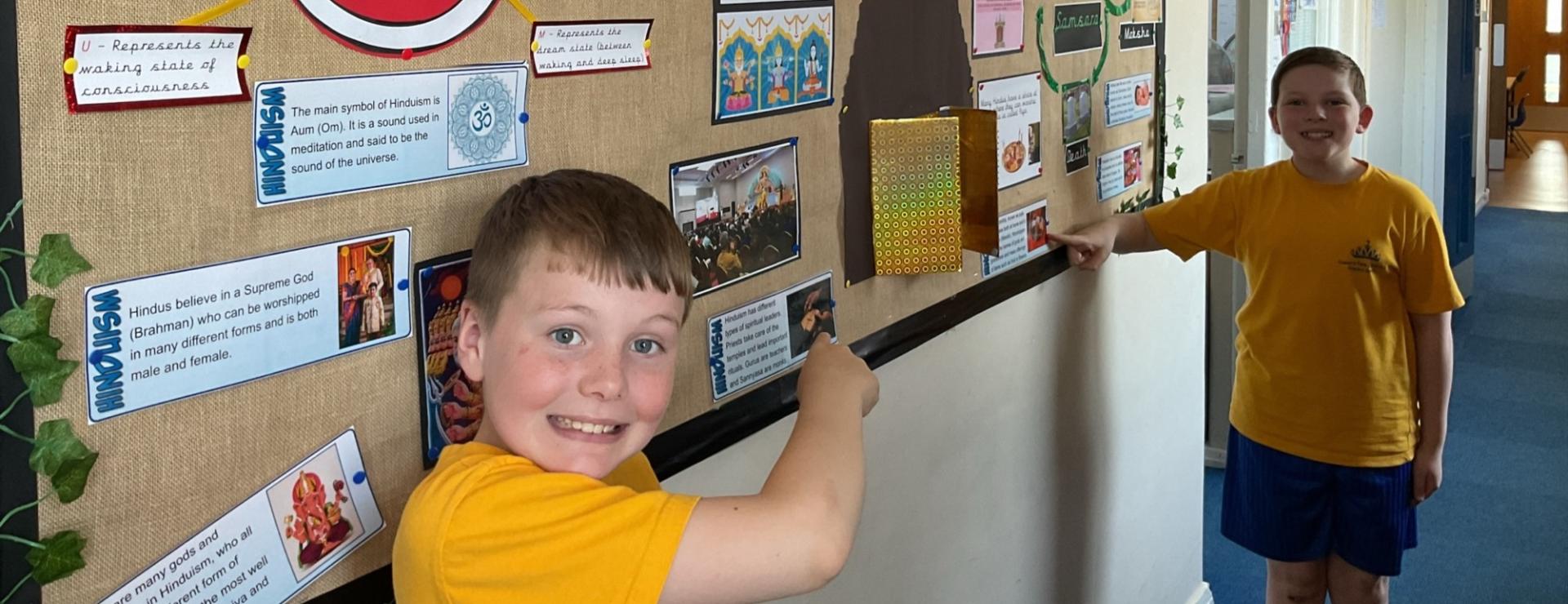
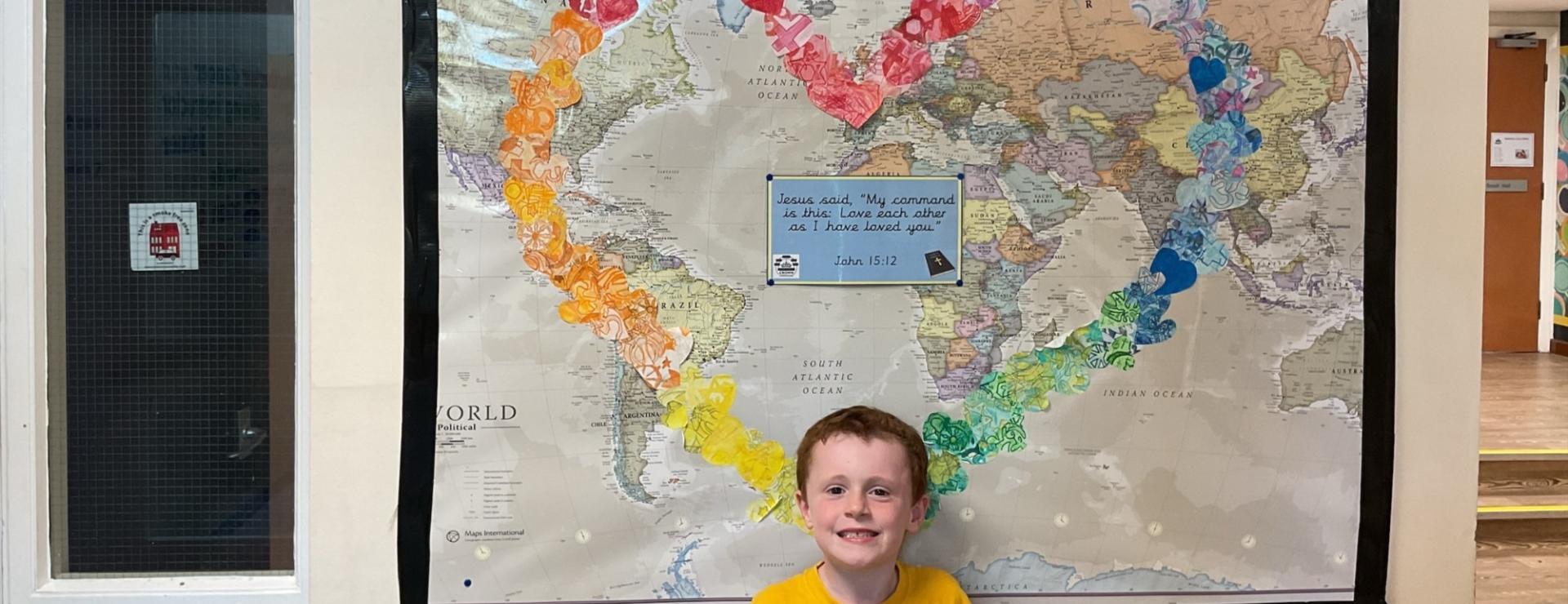
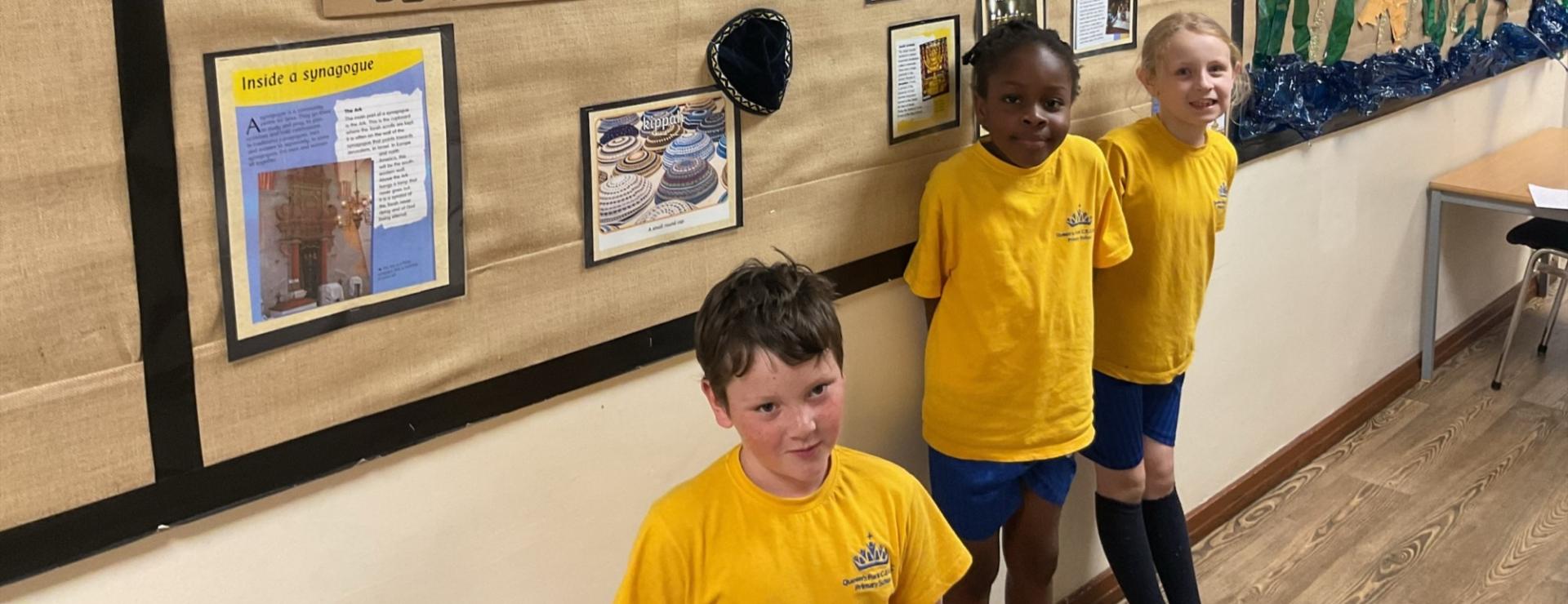
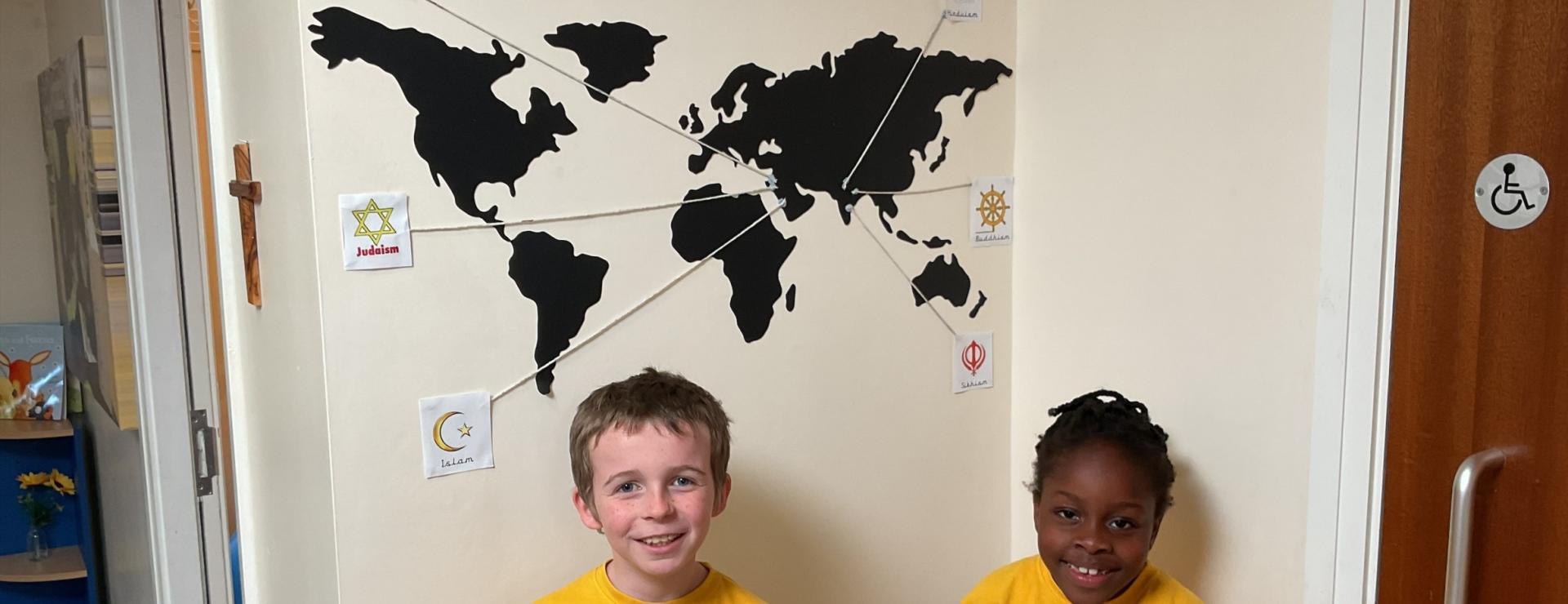
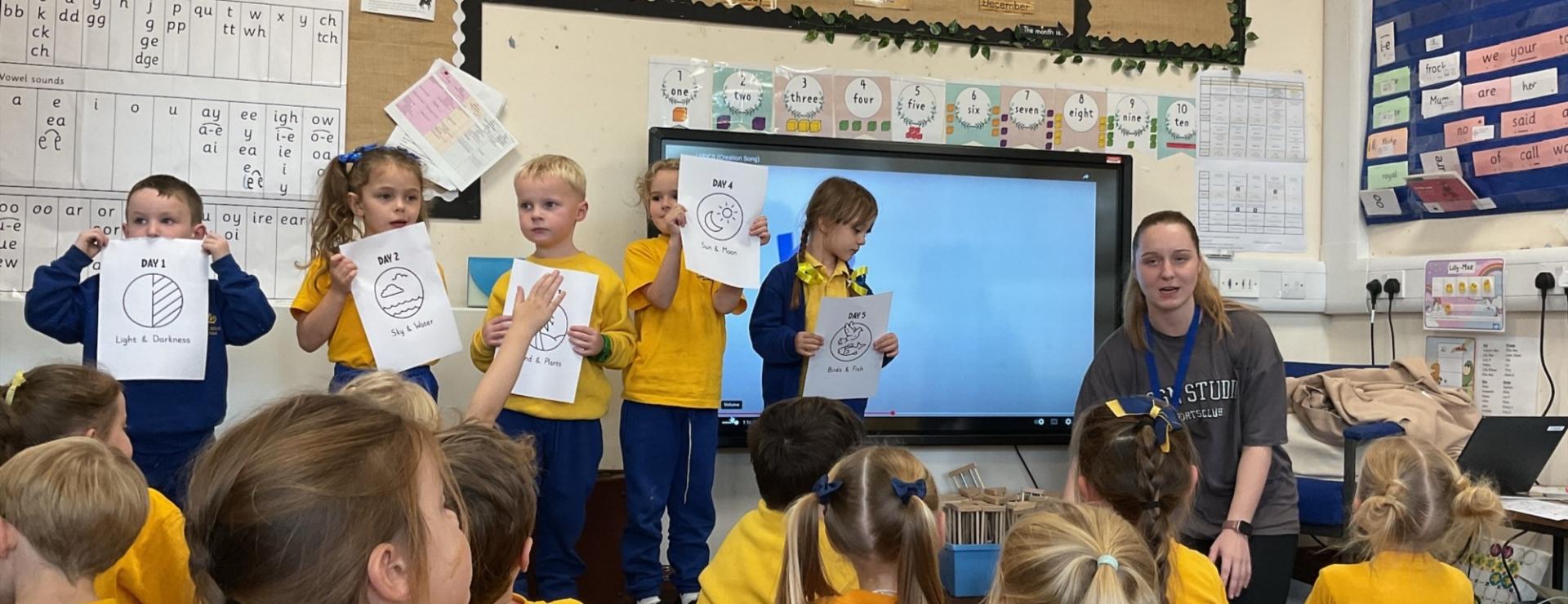
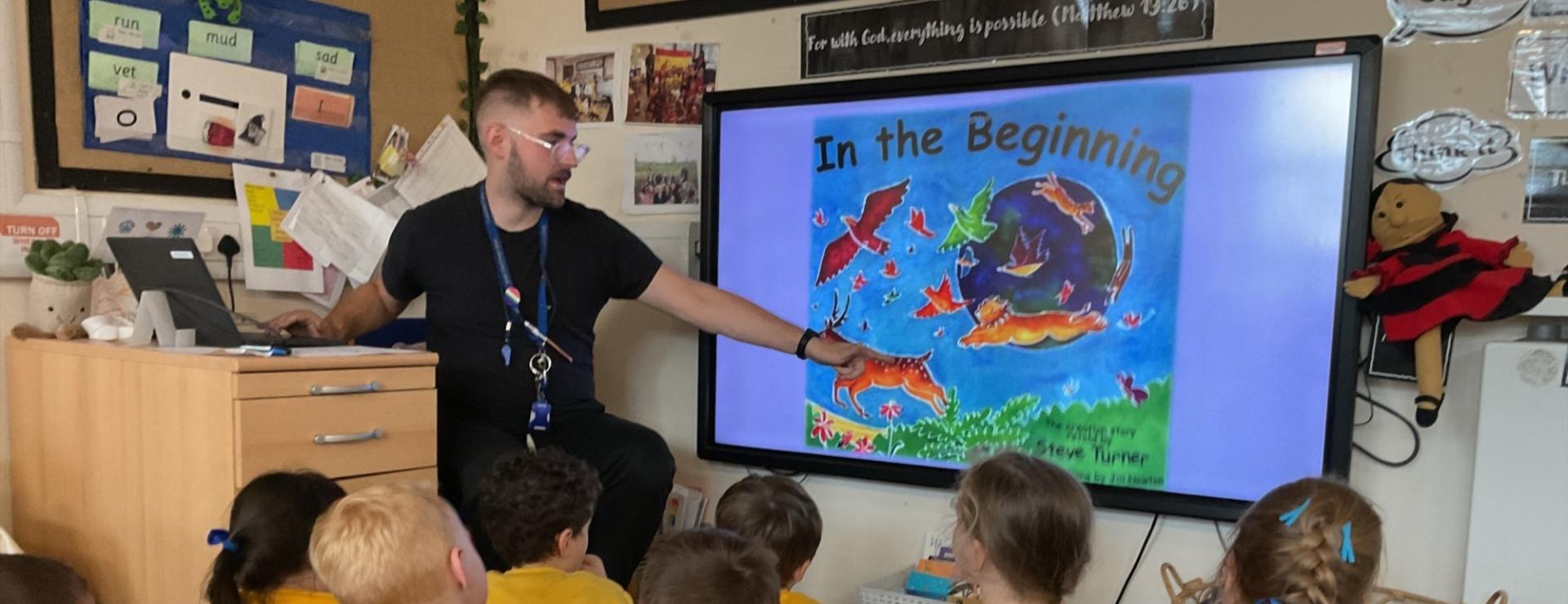
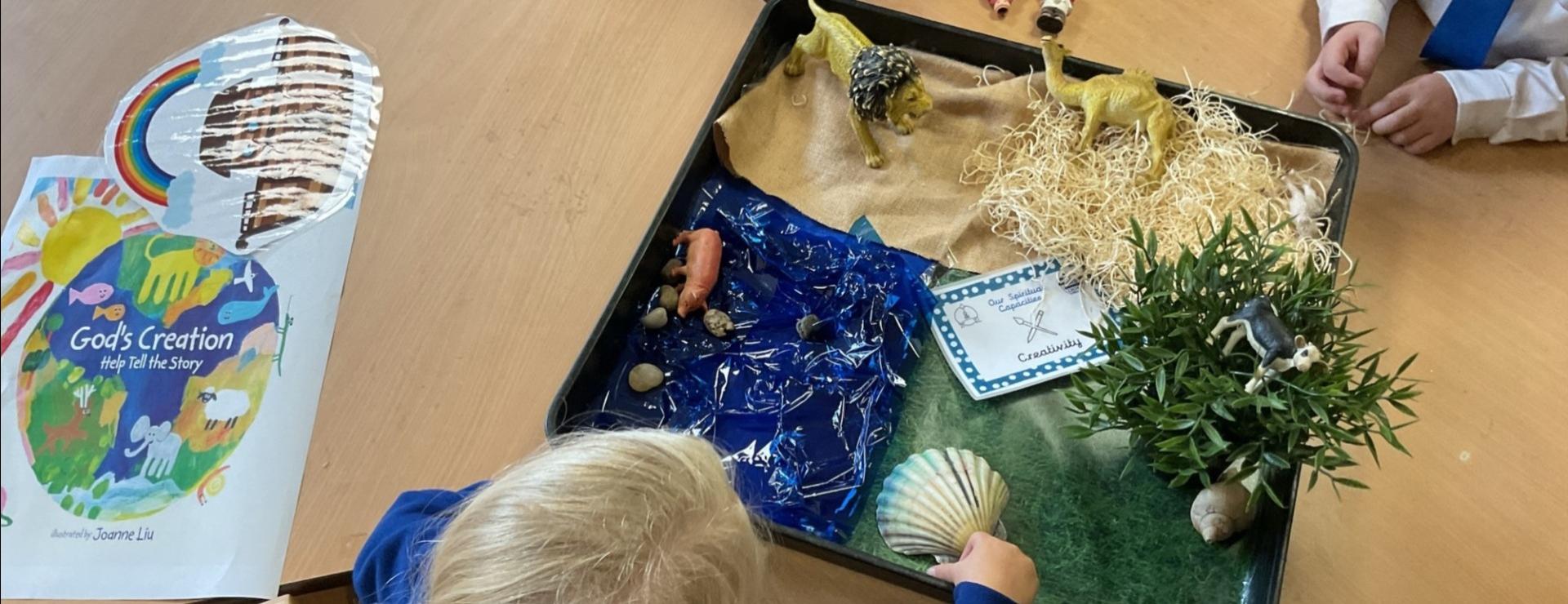




.PNG)



.png)

.png)


.png)



.png)


.png)
.png)